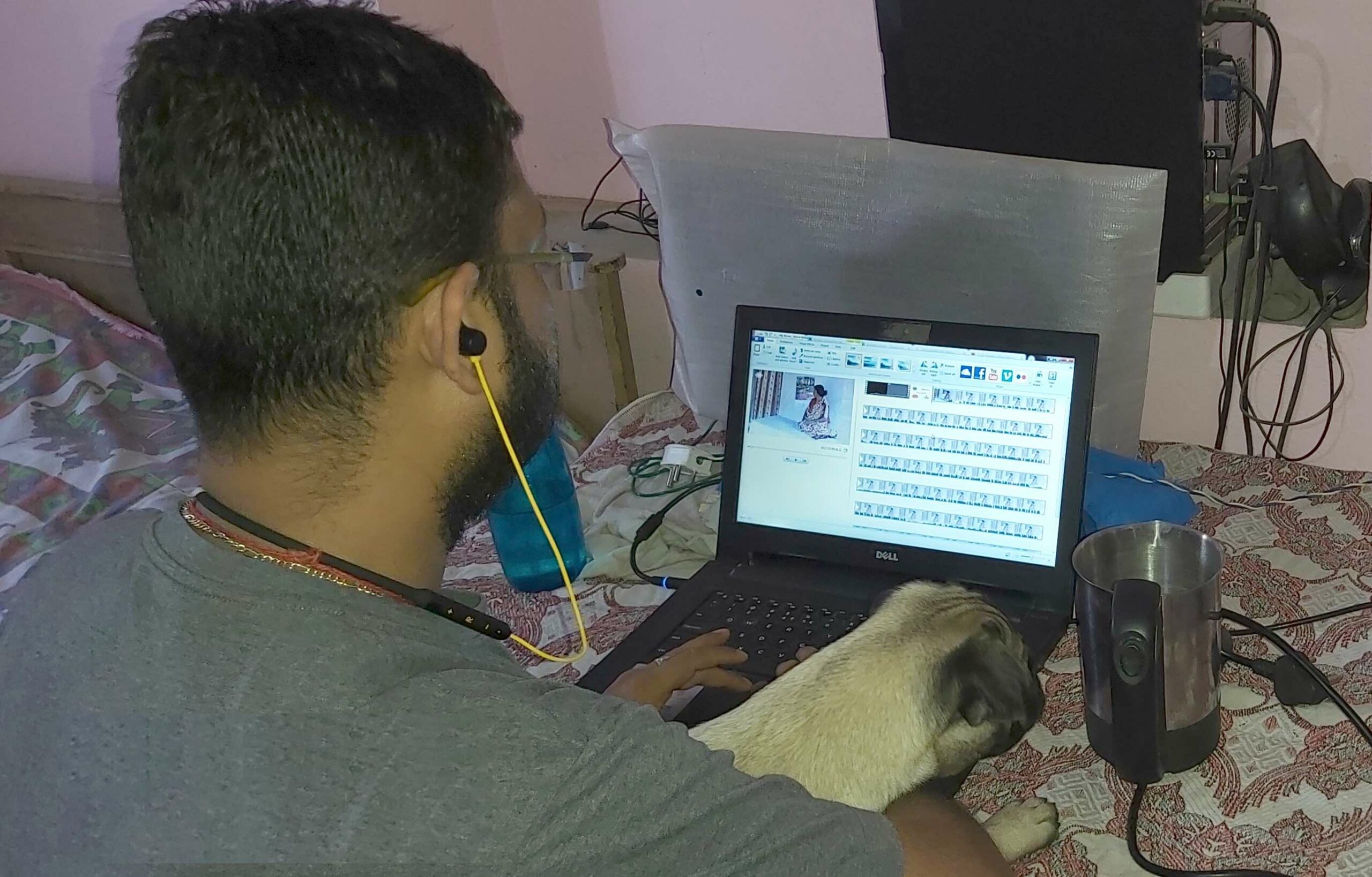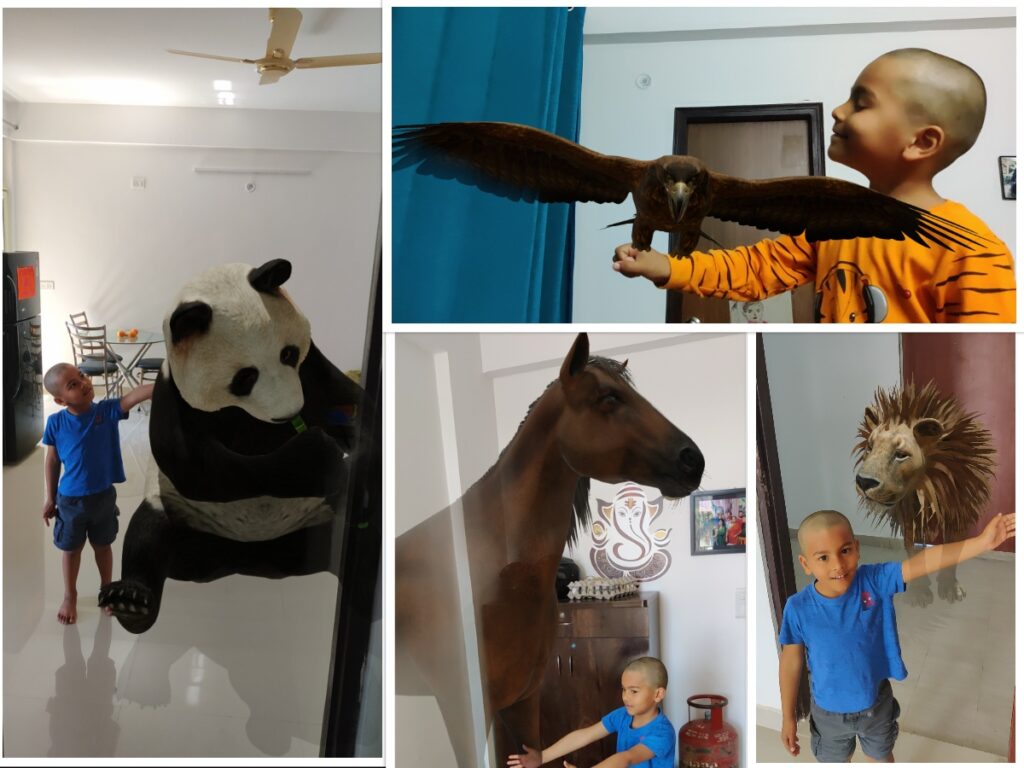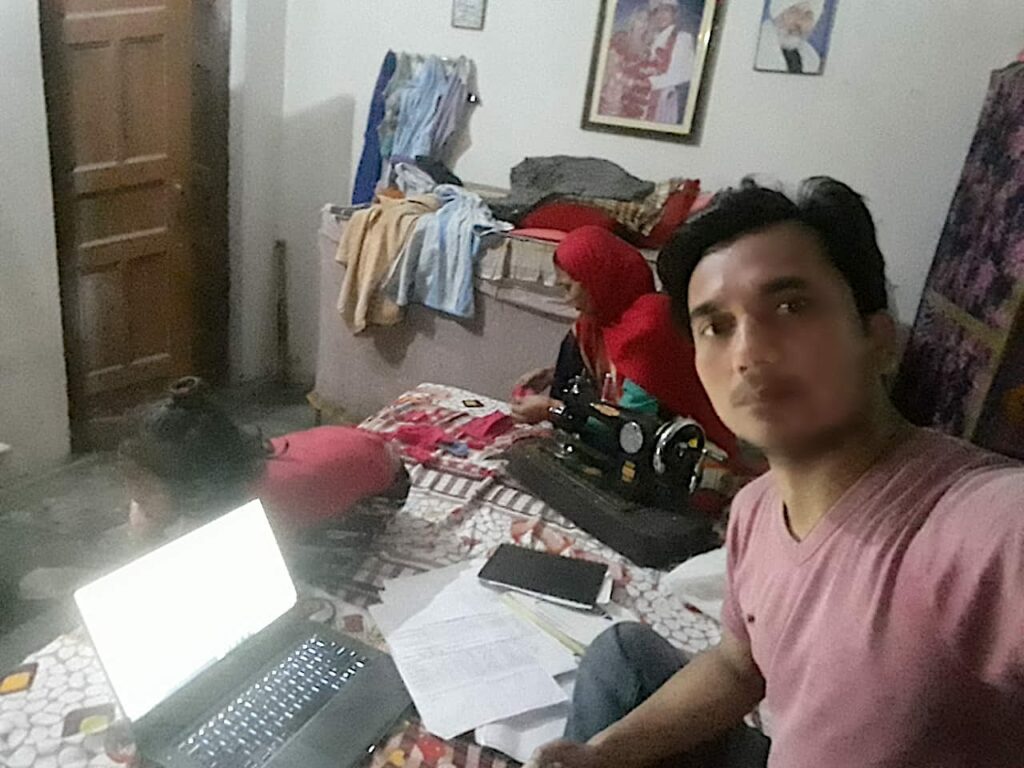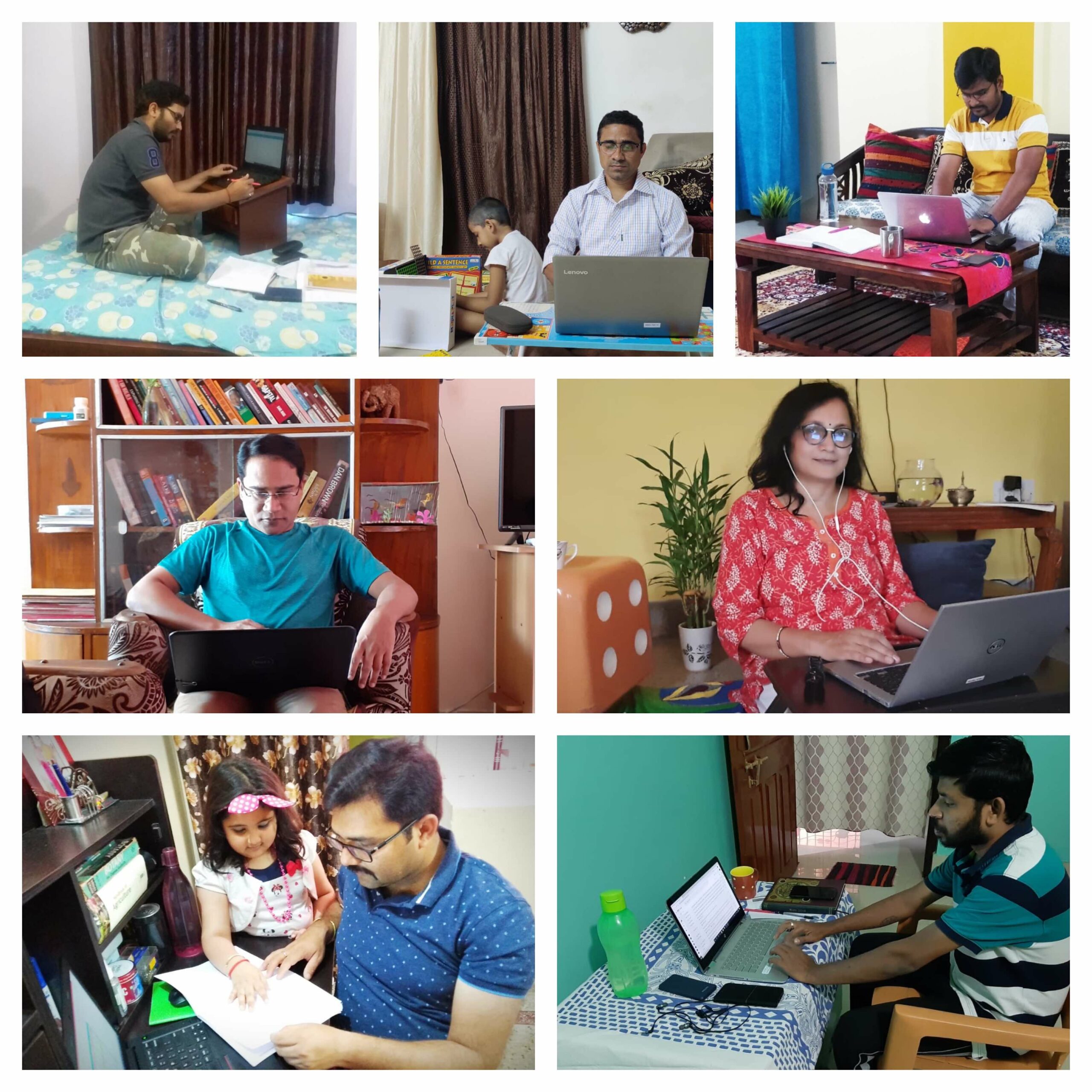To learn more about Digital Green’s AI-powered platform and how it impacts small-scale farmers in India, Ethiopia, Kenya, Nigeria and Nepal, we encourage you to sign up for our newsletter.
Life in the times of COVID-19

As social distancing becomes a necessity and remote working a reality, most of our staff based in the regional offices who have been our critical link with the rural farming communities that we serve are adjusting to what is a completely new way of working.
While we have the monthly global staff calls, and the more frequent team/project related discussions over conference calls, these used to last not more than an hour at a time. However, in the last couple of weeks, we’ve seen marathon calls as our teams huddled around project plans to strategize how we should work during the lockdown and how we can continue to reach out to the community members and also support our government partners in their fight against this pandemic.
Upon receiving a request from our government partner National Health Mission – Bihar, our team created this video from existing footage. Our technology team is working on a prototype that expands the scope of the Kisan Diary app to allow farmers to get in touch with businesses that can help them sell their fresh produce.
And our team of Brand & Culture (B&C) Champions (staff from each of the offices that keep our focus on our organizational brand and values) are conducting a survey to consult with the teams spread across the globe and seek suggestions and really understand how everyone is coping, what kind of support they require, what resources they would like to get and through what kind of channels.
Here, our teams shared some reactions from the field-based staff on how they are coping with the self-isolation and remote working:
Srikanth Gunjoju, D eputy Program Manager: Since the beginning of the pandemic, I have been following the updates and been worried about my family’s health. As both my wife (Srilatha) and I travel frequently for work, we were worried that we may carry the virus home. Luckily, both our organizations have allowed us the option to work from home even before the Government of India took the decision to lock down the country for 21 days and that helped us prepare ourselves – arrange internet connection at home, buy groceries, and medicine for our parents.
eputy Program Manager: Since the beginning of the pandemic, I have been following the updates and been worried about my family’s health. As both my wife (Srilatha) and I travel frequently for work, we were worried that we may carry the virus home. Luckily, both our organizations have allowed us the option to work from home even before the Government of India took the decision to lock down the country for 21 days and that helped us prepare ourselves – arrange internet connection at home, buy groceries, and medicine for our parents.
Home quarantine has given me the opportunity to spend more time with my family. Our children, SriLaasya and SriHarsha are happy to see both of us at home and we keep them engaged by playing board games, role-playing, and we’re also teaching them how to water the plants in our kitchen garden. So far, the children are enjoying the new routine.
In the meantime, I’m also planning to accomplish few assignments that frequent travel leaves me little time to do. My wife has also shown interest in knowing more about my work with community videos. She was happy to know the purpose and impact our work is creating in the lives of farmers. Before this quarantine, she only knew where my office was and in which domain I work. Similarly, I’m also learning more about her work. I hope we continue to talk and learn about our work-life even after this lockdown.
Venkat Goud, Program Manager: With India going into lockdown for 21 days all sectors are working from home except emergency services who are working very hard to protect us by putting themselves at risk. In this stressful situation, working from home is an unforgettable experience. Everyone is constantly focused on and discussing updates regarding COVID -19 every minute of the day. Any conversations with family, friends, relatives, neighbours, partner staff, other stakeholders are only about COVID-19. Amidst all this, regular calls with the team at the state, India and the Global team has helped me feel connected with others. Sharing experiences and feelings with the team and getting support/guidance has helped in building my confidence and allowed me to work from home smoothly.
 Ranga Charyulu, Program Manager: This is a unique experience. My work is mainly in the field and at the partner’s offices and includes frequent travel. I am not used to spending so much time at home. But now we are managing work through our laptops and mobile phones form home. I’ve been keeping in touch with the various partner staff and field functionaries over the phone and we all start our calls by inquiring about each other’s and our families’ wellbeing. Regular contact with our teams, catching up on the situation in and around where we all work and chatting about our families helps set the mood right and keeps our spirits high.
Ranga Charyulu, Program Manager: This is a unique experience. My work is mainly in the field and at the partner’s offices and includes frequent travel. I am not used to spending so much time at home. But now we are managing work through our laptops and mobile phones form home. I’ve been keeping in touch with the various partner staff and field functionaries over the phone and we all start our calls by inquiring about each other’s and our families’ wellbeing. Regular contact with our teams, catching up on the situation in and around where we all work and chatting about our families helps set the mood right and keeps our spirits high.
Deepak Kadas, Assistant Program Manager: I sense a lot of panic seeing everyone around me wearing a mask. All news channels, social media and websites are flooded with the sad news of the growing number of COVID-19 cases. So, I have decided to spend my time sitting in the balcony and enjoying nature, doing some gardening and listening to music. After a long time, I celebrated my birthday with just my family. On the work front, I am making sure to remain in touch with the community outreach workers to check in on them and the farmers in their area. One interesting update I’m getting from them is that these days many farmers have started enquiring more about kitchen gardens. During this crisis, they are happy to get fresh vegetables from the kitchen gardens. I feel happy and confident that more farmers will come forward to adopt a kitchen garden.
Masthan K Vali, Program Manager: Following up with the community outreach workers over the phone is a new experience, and really challenging especially since they too are stuck in their homes since the government’s orders of the lockdown came into effect on 23rd March. Our thoughts are always with the farmers who are unable to get the necessary guidance/information at this crucial moment of the harvest season. All activities like Farmer Field Schools (FFS) in the morning, Video Disseminations in the evening and meetings for Self-Help Groups (SHGs) has been paused. Frontline workers are following up with the farmers over the phone but getting new adopters into the system is a big challenge. But I’m hoping for the best and hope we’ll overcome this pandemic soon by adopting social distancing.
 Amitesh Anand, Program Manager: As the whole world goes through this life-changing event how can we be left untouched. For me, working from home is an entirely new concept and I have mixed feelings about it. Initially, I was confused but gradually I got into a schedule much like my usual day when I would go to the office – trying to trick my brain into believing I had that same routine. I would wake at 6:30 AM and leave for my office (room upstairs) by 9:30 AM after having my breakfast and saying goodby to my wife and son, have my lunch at 1:30 PM and come back downstairs at 5:30 PM. This new office is pet friendly 🙂
Amitesh Anand, Program Manager: As the whole world goes through this life-changing event how can we be left untouched. For me, working from home is an entirely new concept and I have mixed feelings about it. Initially, I was confused but gradually I got into a schedule much like my usual day when I would go to the office – trying to trick my brain into believing I had that same routine. I would wake at 6:30 AM and leave for my office (room upstairs) by 9:30 AM after having my breakfast and saying goodby to my wife and son, have my lunch at 1:30 PM and come back downstairs at 5:30 PM. This new office is pet friendly 🙂

Sudha Jha, Senior Program Manager: I’ve been managing to keep my child engaged with yoga and innovative games. We also discovered 3D pictures of animals on Google to keep him engaged and learning. I even shaved off his head since he’s not going to be worried about how his hair looks while we’re stuck at home.
Jagdish Sing Rana, Assistant Program Manager: Initially working from home se emed very difficult, but now I’m getting into the habit. Most of my work requires in-person meetings with our partners. But everyone’s got to figure out a way to continue doing their work while remaining quarantined. I’m trying to keep in touch with the National Health Mission team members, get regular field updates, manage data entry, etc. Along with this, I am also taking care of myself and my family’s health and hygiene.
emed very difficult, but now I’m getting into the habit. Most of my work requires in-person meetings with our partners. But everyone’s got to figure out a way to continue doing their work while remaining quarantined. I’m trying to keep in touch with the National Health Mission team members, get regular field updates, manage data entry, etc. Along with this, I am also taking care of myself and my family’s health and hygiene.
My family has been very supportive while I work from home. I live in a joint family, so space is a bit of a challenge. I share the bedroom all day with my 6-year-old daughter who is obsessed with cartoons. But since I have been working from home she has turned down the volume of the TV and she turns it off by herself when I have to get on a call. I am also trying to make more masks at home with my wife since those in the market are quite expensive and ineffective.
